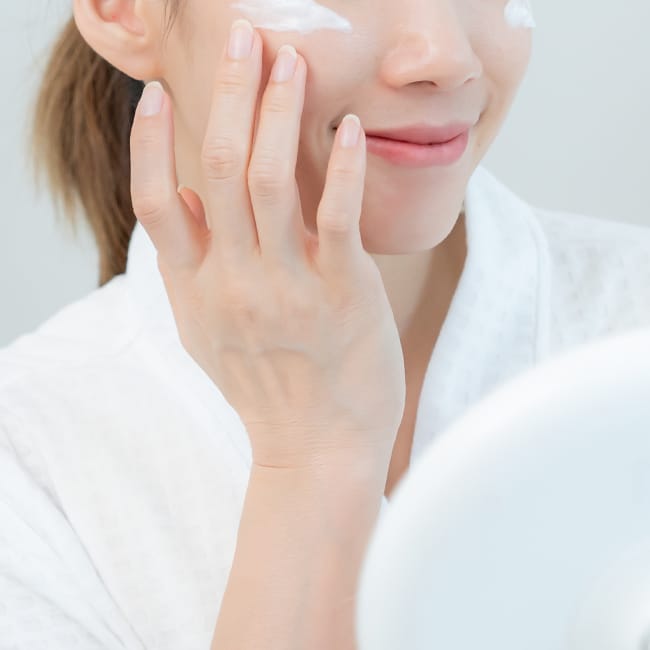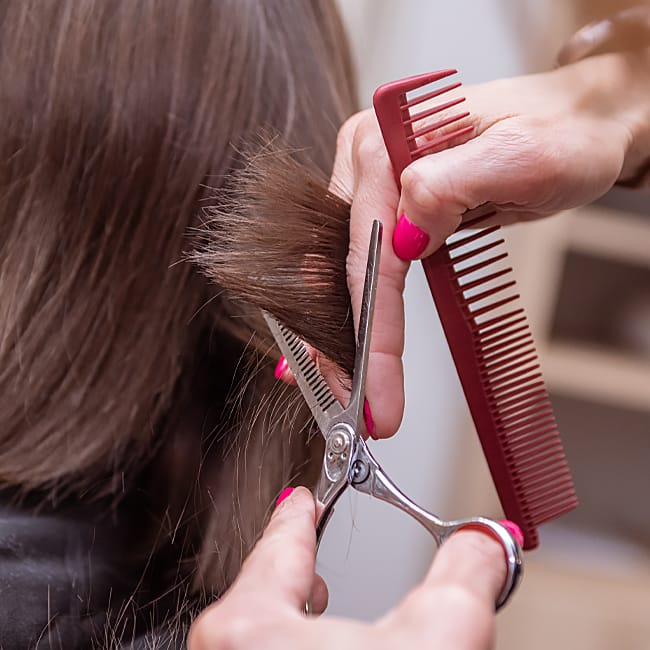Skincare trends come and go with the seasons, and from gua sha to facial exercises it can be difficult to determine which of these is actually effective in improving your complexion, and which are best left out of your routine. One such practice that has risen in popularity in recent months is dermaplaning, or taking a small razor to your face to rid your skin of fine hair and dead skin, while claiming to reveal a rejuvenated complexion beneath. So will this new fad stick around, and does it actually help to improve your skin over time? Dermatologists seem to think so.


What is dermaplaning?
In the most basic terms, dermaplaning is lightly shaving the skin of the face to remove peach fuzz and skin that can cause your complexion to appear dull and limit the efficacy of which your skincare ingredients can be absorbed into your face. “Dermaplaning involves using a blade to remove peach fuzz and superficially exfoliate the skin,” explains board-certified dermatologist Erum N. Ilyas, MD, MBE, FAAD. “The result is smoother appearing skin especially when light reflects off the skin given the fact that there is less build up of hair and dead skin on the surface.” Rest assured, contrary to popular belief the hair on your face will not grow back thicker or darker than before.
How can dermaplaning impact your complexion?
As an anti-aging tool, dermaplaning can help to add some vibrancy back into the skin, eliminating the dead skin that may cause you to appear dull and aged. “Skin that reflects and accentuates light gives the instant impression of a youthful glow. In this manner, dermaplaning can impact the overall appearance and impression the skin offers,” notes Ilyas. With this, the process can also help to improve skin texture by removing excess buildup on the surface, while providing a blank canvas for makeup to be blended on top of with increased ease. Not only will you look great without foundation, but your face makeup application will also benefit from dermaplaning.
How often should you be dermaplaning?
So how often should you really be dermaplaning in order to reap the skin benefits without going overboard? Thankfully, this process is both accessible and only needs to be practiced between once a week to once a month depending on how quickly dead skin builds up on your skin, or the rate at which peach fuzz returns. “Just as with shaving, the risk of dry razor burns to the skin does exist,” warns Ilyas of what may happen if you take to dermaplaning too frequently. “It can take time for hair to regrow and for a re-accumulation of dead skin cells on the skin,” she adds. Overall dermaplaning is a low risk solution to dead skin that acts as a much gentler exfoliation technique than abrasive scrubs. If you’re bothered by peach fuzz and are looking to increase your natural glow, this is the ideal step to include in your beauty routine once a month for an instant boost to your complexion—dermatologist approved.


























